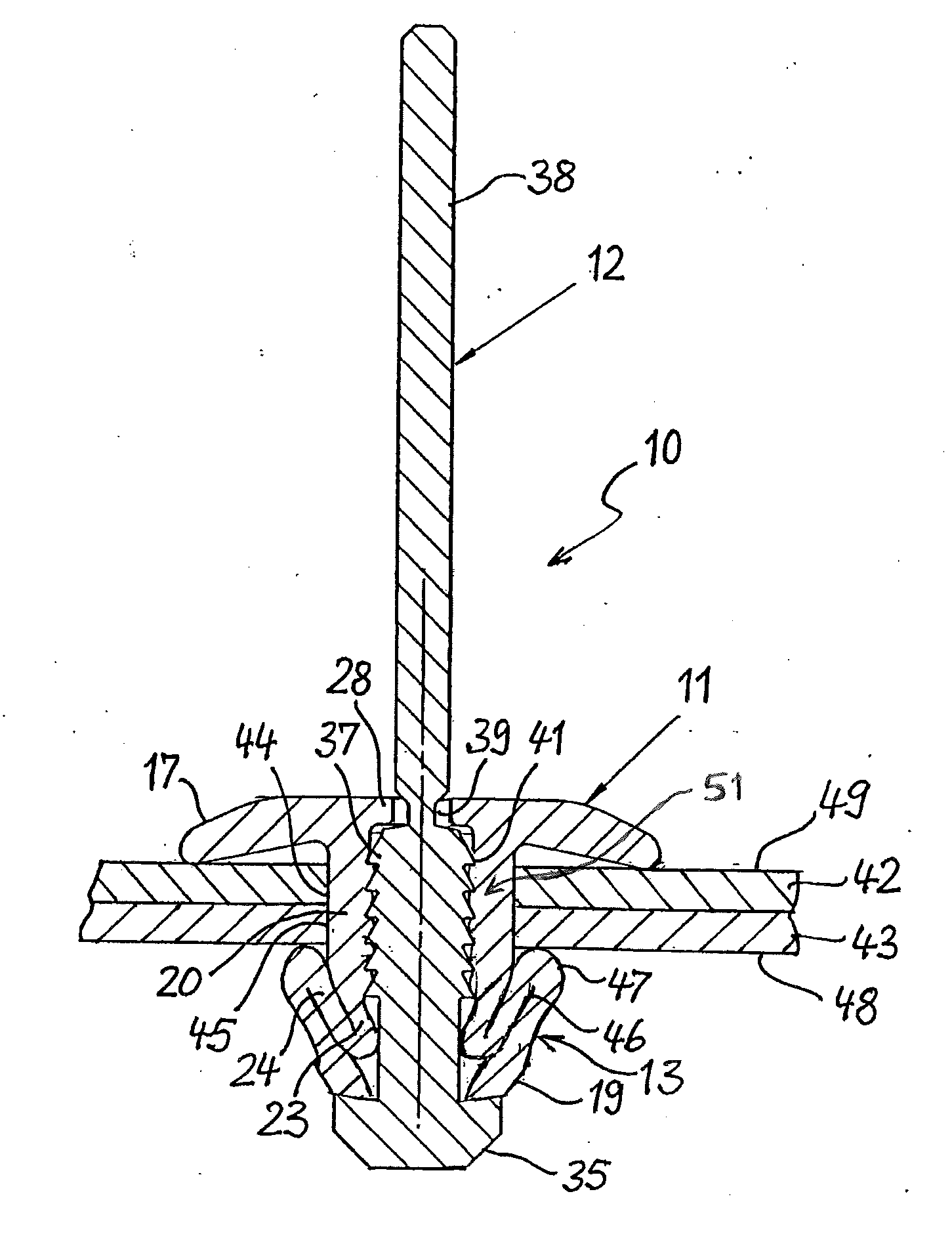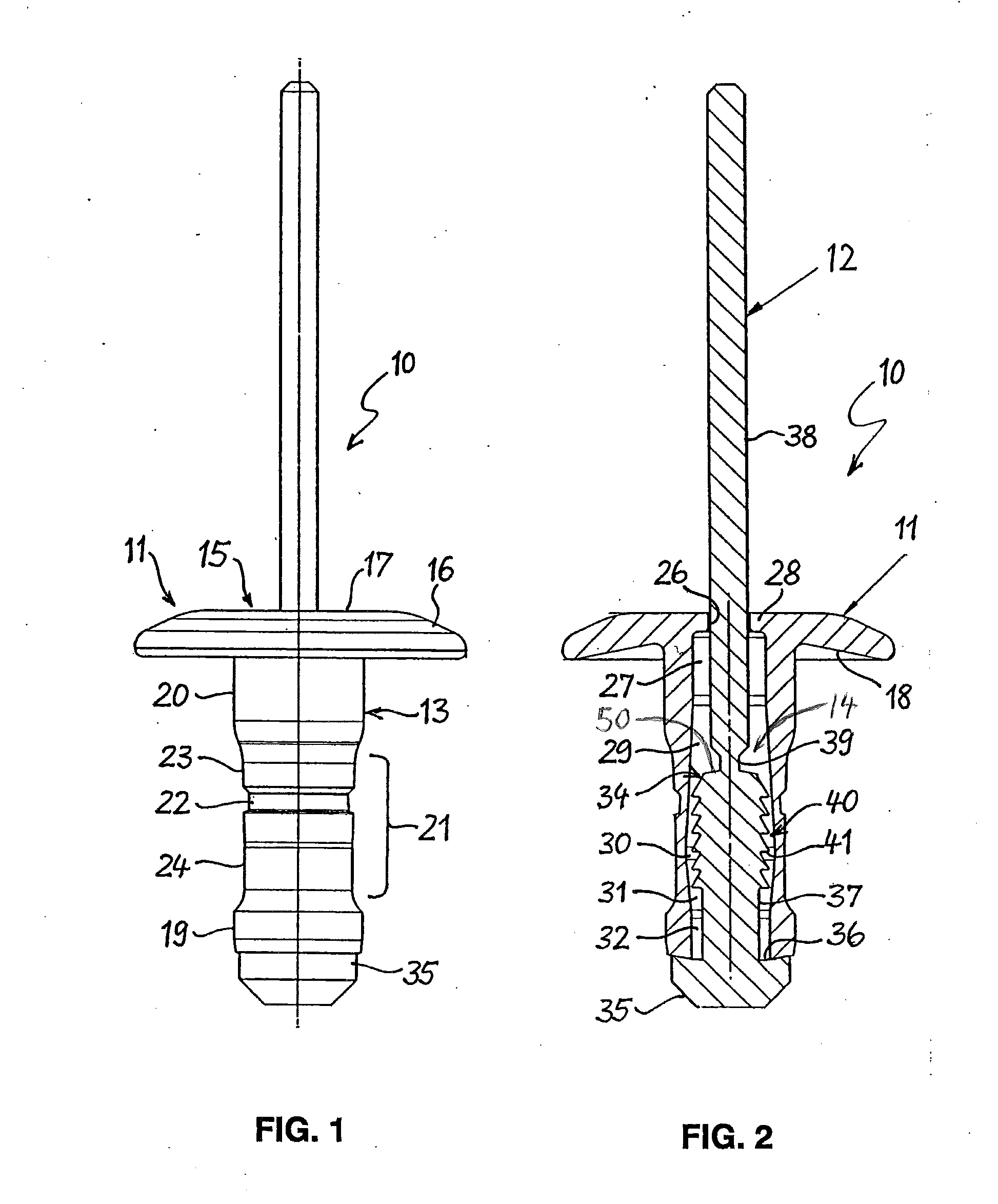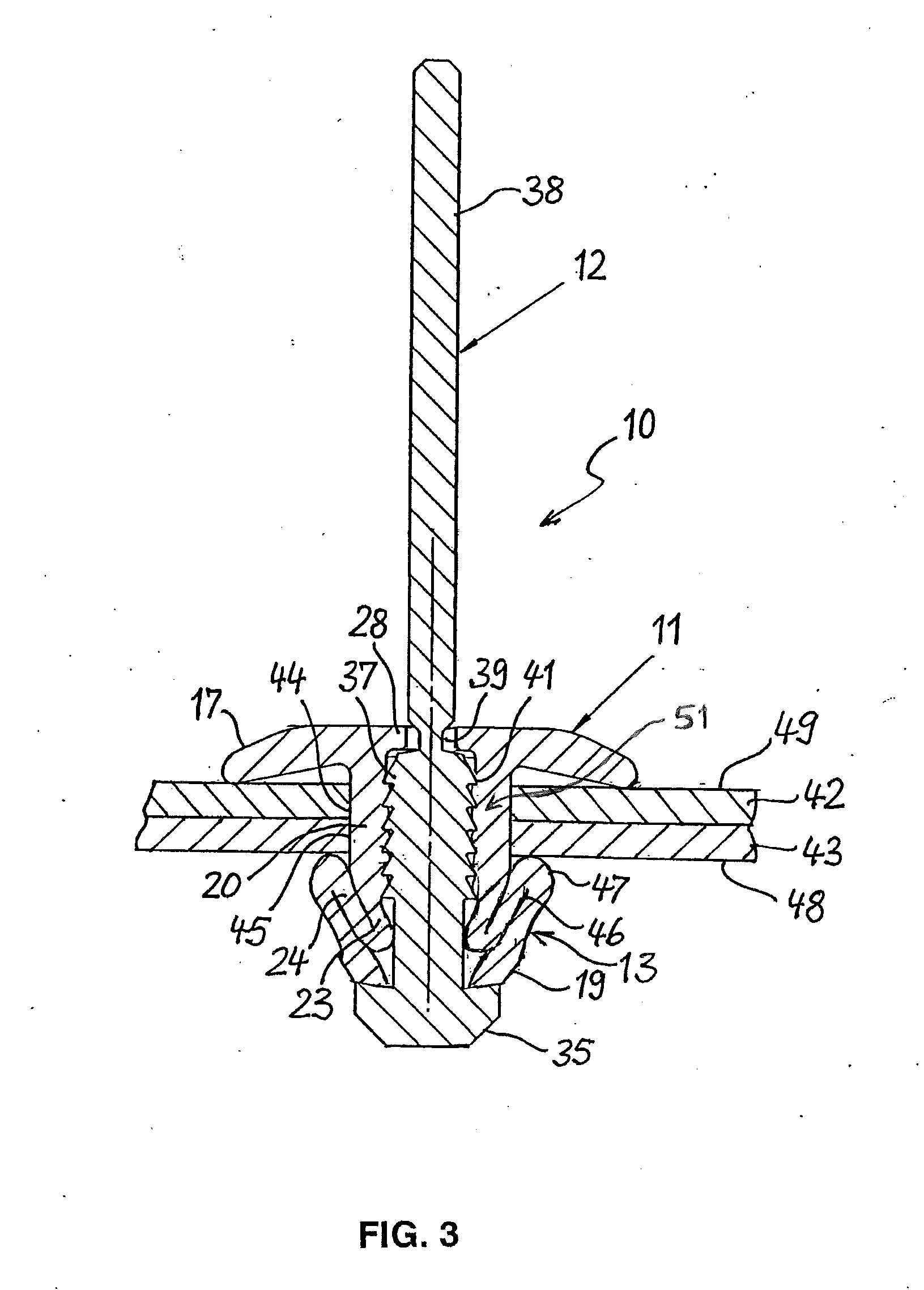Blind rivet with a plastic rivet body
a technology of plastic rivets and blind rivets, applied in the field of blind rivets, can solve the problems of door frame, module support damage, extra effort in the removal of the latter, etc., and achieve the effects of reducing the number of rivets
- Summary
- Abstract
- Description
- Claims
- Application Information
AI Technical Summary
Benefits of technology
Problems solved by technology
Method used
Image
Examples
Embodiment Construction
[0028]The blind rivet 10 shown in FIGS. 1 and 2 consists of a rivet body 11 and a mandrel 12. The rivet body 11 is made of plastic and has an elongated shank 13 with a through-bore 14, in which the mandrel 12 is located. One end of the shank 13 forms a head 15, which takes the form of a disk-shaped flange 16 and is intended to contact an accessible side of a workpiece. On the side facing away from the shank 13, the head 15 has a flat support surface 17 for supporting the forward end of a rivet setting tool. The flange 16 radially overhanging the shank 13 is domed in the manner of a spring washer, and has a concave contact surface 18 on the side facing the shank 13. As a result, the flange 16 can yield elastically when the head 15 of the blind rivet 10 is pressed against a workpiece.
[0029]The end of the shank 13 opposite the head 15 constitutes a foot end 19; with said foot end forward, the shank 13 is passed through the mounting openings of workpieces to be joined to one another. Th...
PUM
 Login to View More
Login to View More Abstract
Description
Claims
Application Information
 Login to View More
Login to View More - R&D
- Intellectual Property
- Life Sciences
- Materials
- Tech Scout
- Unparalleled Data Quality
- Higher Quality Content
- 60% Fewer Hallucinations
Browse by: Latest US Patents, China's latest patents, Technical Efficacy Thesaurus, Application Domain, Technology Topic, Popular Technical Reports.
© 2025 PatSnap. All rights reserved.Legal|Privacy policy|Modern Slavery Act Transparency Statement|Sitemap|About US| Contact US: help@patsnap.com



